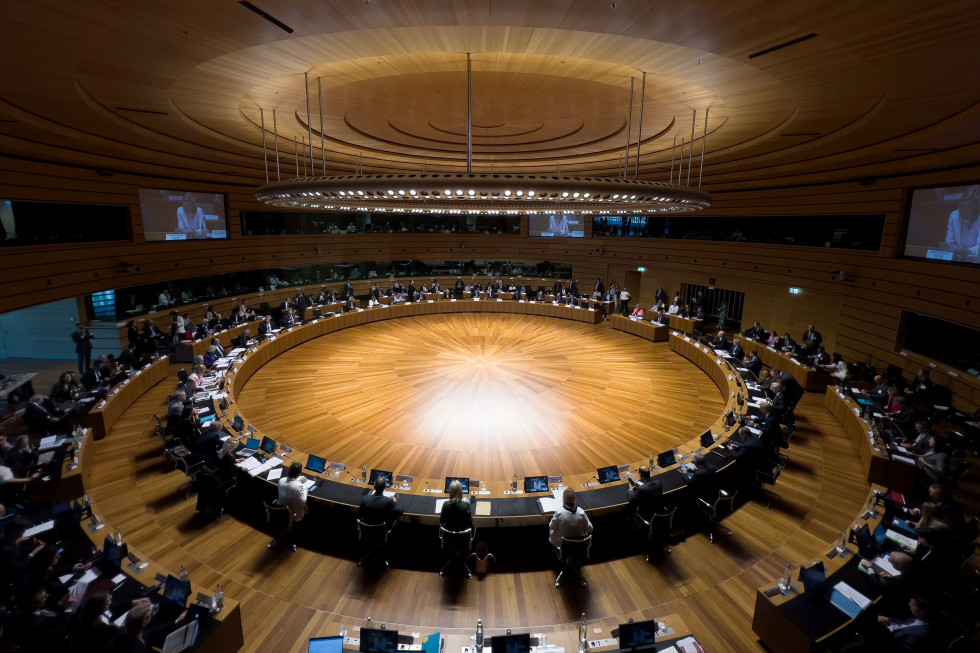Ministers in Luxembourg on Schengen and the EU visa policy
On 16 April 2024, the European Commission published its Schengen Package 2024 to strengthen the governance of the Schengen area and ensure a structured, coordinated and common response to today's challenges, thus launching the Schengen Council cycle 2024-2025. At the Council meeting, European Commission also reported on the State of the Schengen area for 2024. The report shows that the Schengen rules are generally well applied, although there are some implementation gaps. "The report's finding that some important progress and improvements have been made over the last period may give us some cause for optimism, but it also points to certain shortcomings that need to be urgently addressed. The key will be to ensure that the tools we already have at our disposal are fully used and that the implementation of the priorities is regularly and properly monitored," Minister Poklukar said.
Ministers held an exchange of views on the future of the EU common visa policy. In addition to the need to put in place appropriate measures in the framework of visa policy to prevent or address potential risks to the EU's internal security, the interconnectedness of visa and asylum policy is increasingly being highlighted. Data from 2023 shows a high proportion of applications for international protection lodged in EU Member States by the nationals of the third countries with visa waiver agreements for most of whom there is a low level of recognition of international protection. "Visa policy is an important part of the Schengen acquis and is becoming an increasingly relevant element of the EU's common foreign policy. I welcome the Presidency's initiative to develop a common strategy on the EU's visa policy, so that in the future it will be able to respond in a timely and effective manner to geopolitical situations and emerging risks," Minister Poklukar underlined, adding that "Slovenia supports a more decisive approach to addressing the inconsistencies in the visa policies of third countries, especially considering the negative impact these policies have on the migration flows to the Schengen area and internal security. I have repeatedly called for the need for the Western Balkan countries to harmonise their visa policies, including in my bilateral contacts with the high representatives of these countries."
The pact on migration and asylum was also addressed by the ministers as member states now have two years to put the set of rules into practice. The European Commission presented the Common implementation plan for the pact on migration and asylum that provides a template for the National implementation plans, which will include a description of the current state and the planned steps for implementation of the pact: the legislative/regulatory amendments, human resource capacity, infrastructure, IT requirements, expenditures and public procurement. The Ministry of the Interior has already set up an internal working group to outline all activities.
The lunch topic was devoted to strengthening crisis preparedness and response at EU level. At the afternoon session, the minsters discussed the fight against drug trafficking and organised crime, as the Presidency reported about the progress achieved in this area. Ministers also exchanged views on the recommendations of the High-Level Group (HLG) on Access to Data for Effective Law Enforcement. "Slovenia welcomes and supports the recommendations, which we believe respond to the practical challenges we face on a daily basis," minister Poklukar stated and declared his support for the proposal to draw up a specific plan that would include a clear timeline and financial aspects of the proposed next steps.

Justice and Home Affairs Council in Luxembourg | Author European Union

